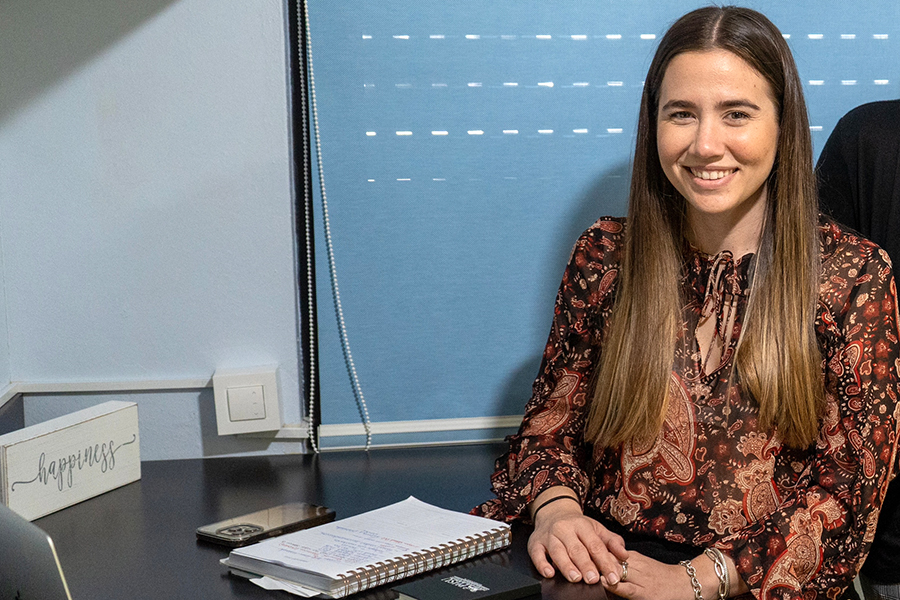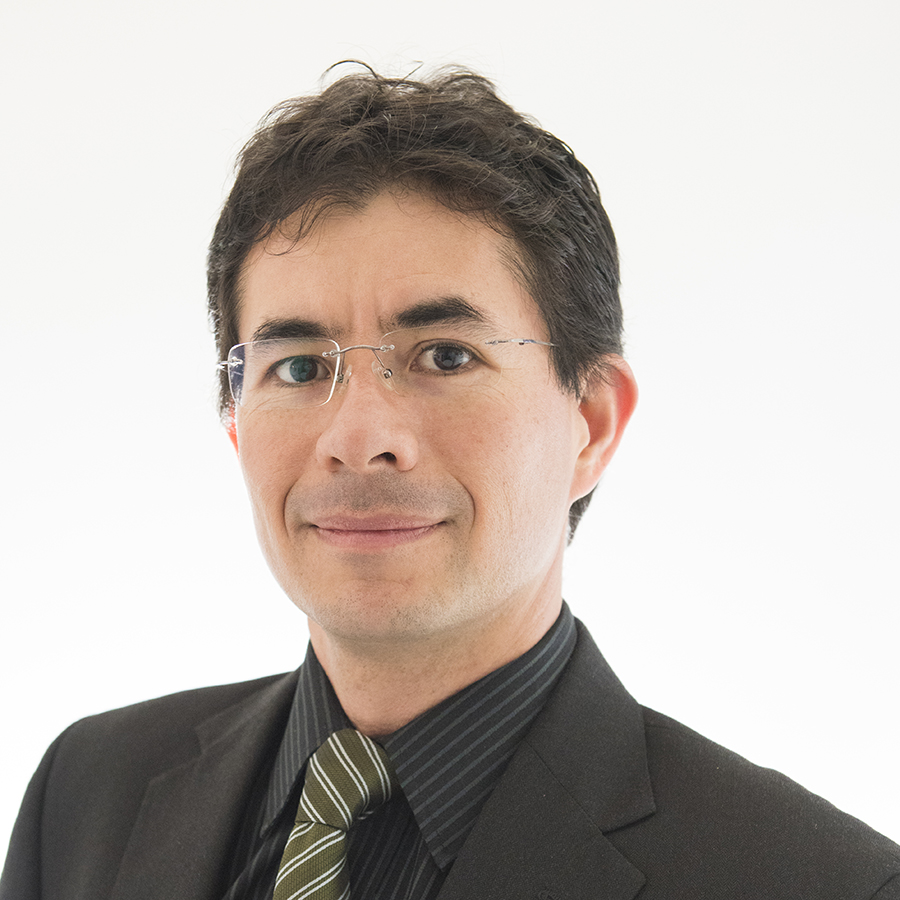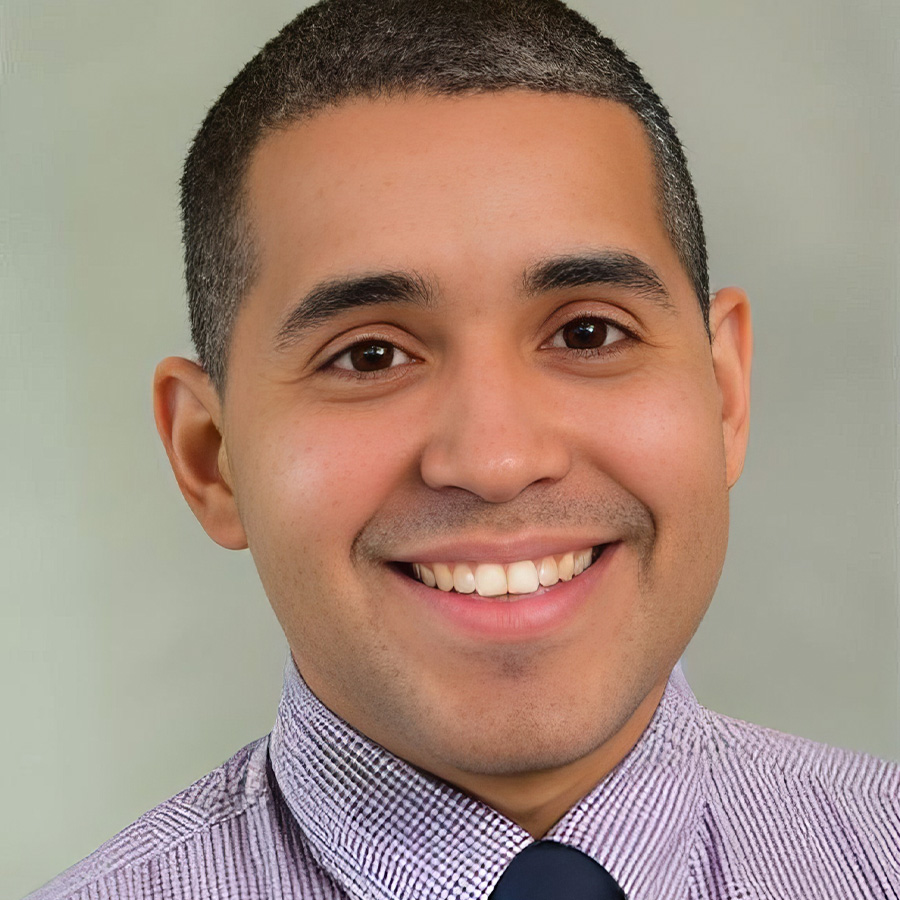
“I want to address problems, not just raise them,” said Normarie Torres-Blasco, Ph.D., assistant professor, early-stage investigator, and clinical psychologist at Ponce Health Sciences University in Puerto Rico.
Key Facts
- Providing end-of-life care for her great-grandmother, Dr. Torres-Blasco saw the connection between mental illness and chronic illness.
- She had to fight for years to receive the correct diagnosis for her own chronic heart condition.
- Her research aims to document the interconnections of chronic health and mental illness in Latinos.
- Dr. Torres-Blasco remains in Ponce, with an unwavering commitment to the health of her community.
Normarie Torres-Blasco, Ph.D., is dedicated to finding solutions, improving health care access, and integrating mental health into standard care treatments. She’s been a patient, a caregiver, and a researcher. It is this combination of experiences that has led her to dedicate her career to studying the connection between mental illness and chronic illnesses.
Dr. Torres-Blasco’s path to health research can be traced back to when she was starting her undergraduate studies in 2009. She was living with her great-grandmother, Norma, for whom she was named, helping to oversee her end-of-life care in Ponce, a large city on the southern coast of Puerto Rico.
Norma suffered from depression after losing her husband of 62 years. Finding therapy was a challenge. Her great-grandmother developed dementia, declined rapidly, and passed away within a year. She was 88. Dr. Torres-Blasco was 18.
“I was very close to her,” she said. “If I had had the knowledge or resources, maybe my great-grandmother would have been with me longer.”
This life-changing experience helped her find her calling – observing and documenting the need to integrate mental health interventions with end-of-life treatments.
A Path to Research with All of Us
Dr. Torres-Blasco completed her Ph.D. in clinical psychology in 2018 from Ponce Health Sciences University and was motivated to translate the findings of her research to improve health care access and reduce health disparities among Latinos. She first heard about All of Us at a cancer research conference for Latinos and is now a registered All of Us researcher.
“There is strong evidence showing how cancer outcomes are impacted by mental illness,” Dr. Torres-Blasco said. “I started thinking about how cancer patients at the end of life needed mental health services, just as my great-grandmother did.”
Through the support and guidance of her mentor, Associate Professor Eida Castro-Figueroa, PsyD, Dr. Torres-Blasco has ongoing research examining the prevalence of cancer rates in Puerto Rico and co-existing chronic health conditions. Ponce is surrounded by rural communities, some in distant mountain regions, with severely limited access to health care, Dr. Castro-Figueroa said.
“She is so focused and passionate about science and serving underserved populations,” said Dr. Castro-Figueroa. “I will always remember our first meeting. Her life experiences really informed her research in a deep way.”
The two began collaborating on health disparities research documenting the prevalence of late-stage cancer diagnosis of Latinos who have less access to early detection and few psychotherapy and communications interventions in Spanish for patients and caregivers.
Already, Dr. Torres-Blasco has co-authored 21 papers in peer-reviewed journals and is developing a model intervention for advanced cancer treatments that combines communication skills training and psychotherapy for both patients and caregivers. She is an early-stage investigator on a Research Centers in Minority Institutions (RCMI) program grant from the National Institute on Minority Health and Health Disparities, which includes supplementary funding from All of Us.
The RCMI program aims to advance novel biomedical research and foster careers for researchers from underrepresented communities. The All of Us Division of Engagement and Outreach is committed to expanding the number of early-stage scientists, particularly from communities historically underrepresented.
“Researchers from diverse backgrounds bring robust perspectives to the program,” said Karriem Watson, D.H.Sc., M.S., M.P.H., All of Us chief engagement officer. “Dr. Torres-Blasco incorporates her lived experiences and is giving back to her community by advancing health knowledge.”
Her research aims to document the interconnections of chronic health and mental illness in Latinos by studying the incidence of chronic health conditions, such as cancer, heart disease, and diabetes, among those with a history of mental illness. The research is novel in studying the interplay of ancestry and genetics as contributing factors of chronic conditions, health disparities, and mental illness in Latinos.
“People with mental illness have a higher morbidity and mortality rate due to preventable chronic diseases,” Dr. Torres-Blasco told a group of researchers and All of Us Research Program staff at a presentation at Ponce Health Sciences University.
To explore these connections, she recently started tapping into the All of Us Researcher Workbench. Dr. Torres-Blasco aims to develop an intervention model to address health care access gaps and disparities.
“I want to make the point that we need more services in mental health for Latinos coping with chronic health conditions,” she said. “That’s one of the main goals of my research with All of Us.”
A Patient’s Perspective: Living with a Rare Heart Condition
While her family and community have been a guiding force in her career, Dr. Torres-Blasco, 32, also personally understands the challenges patients face. She has lived with a chronic heart condition her entire life.
Her own health troubles began at a young age growing up in Yauco, a rural community outside Ponce. At age 5, while learning to ride a bicycle, she felt a sudden, sharp stab in her chest and collapsed on the ground. Doctors didn’t see any need to perform tests on a young child and said she just needed to get back on the bike and try again, however, these episodes continued through adolescence and young adulthood.
“When I had pain, I would lose consciousness, my body would shut down,” she said. “I tried to accept it and just deal with it.”
Doctors continued to dismiss the signs, telling her and her family that she was dramatic and overly emotional. Finally, at university, she requested an appointment with a cardiologist to test the electrical activity of her heart through an electrocardiogram. They found abnormal activity and told her she had arrhythmia, an irregular heartbeat that can cause complications when the heart’s electrical signals misfire.
She received medication, but the fainting spells continued. Dr. Torres-Blasco knew something was more serious. In 2018, after graduating with her doctoral degree, she married her longtime partner, Jose Oscar Santiago. It was a happy and calm time, yet soon after getting married, she experienced another painful episode. She requested more testing and was finally diagnosed with neurocardiogenic syncope. This rare disorder is poorly understood and triggered by the body’s abnormal or heightened response to various stimulation.
As part of her treatment, Dr. Torres-Blasco received a pacemaker which has dramatically improved her condition and her daily living. In 2021, despite serious childbirth complications, she was able to give birth to a healthy baby girl, Stella.
A Focus on the Future in Ponce
Dr. Torres-Blasco shares the obstacles she has overcome to help build solutions for others. Her guidance and mentorship with Dr. Castro-Figueroa helped her create a collaborative partnership with the students she mentors. She advises graduate students to speak up, trust their instincts, and refuse to let others dismiss them.
“I am an open book,” Dr. Torres-Blasco said. “When young women start in my lab, I share my experiences. It is hard for us as women to speak about problems.”
Dr. Castro-Figueroa attributes Dr. Torres-Basco’s success in part to her willingness to share challenging experiences.
“She is a champion. She shares the lessons she’s learned through her lived experiences, how she has overcome obstacles,” Dr. Castro-Figueroa said. “It allows students to think about maybe their own pitfalls and to sit down together to solve them.”
It’s these experiences – as a researcher, caregiver, and patient – that drive Dr. Torres-Blasco’s commitment.
“I want to give back to my community,” she said. “That is why I have stayed in Ponce.”
Share your story with All of Us
If you would like to recommend someone to be featured, please submit a suggestion to All of Us.
Are you Interested in the All of Us Research Program?
- Learn about participation in the program.
- Learn about opportunities for researchers.
 U.S. Department of Health & Human Services
U.S. Department of Health & Human Services



